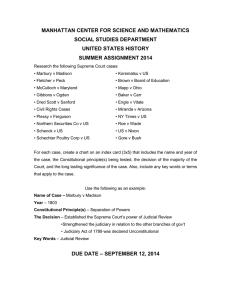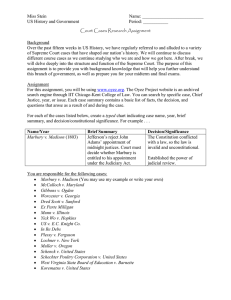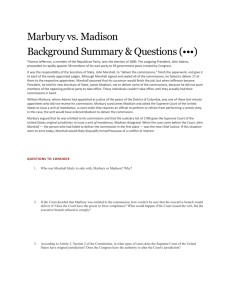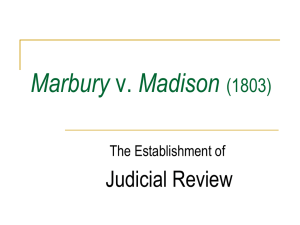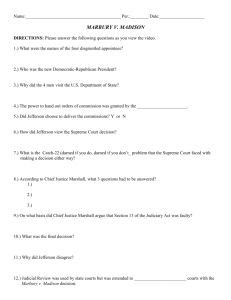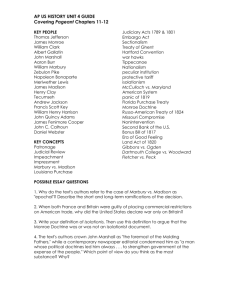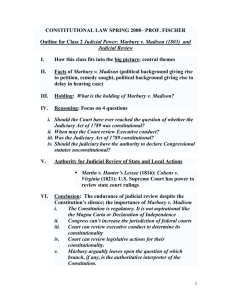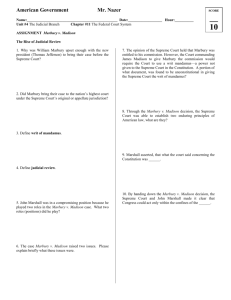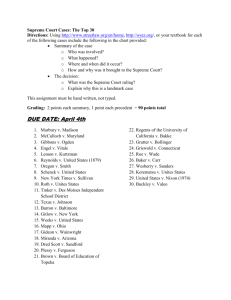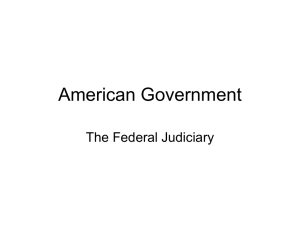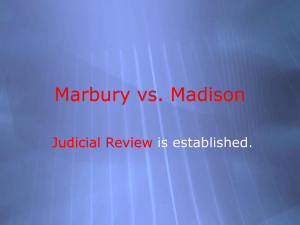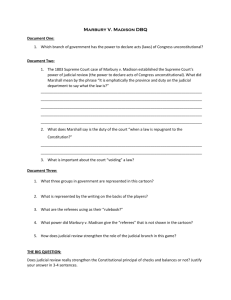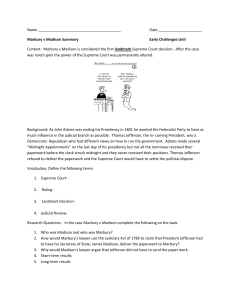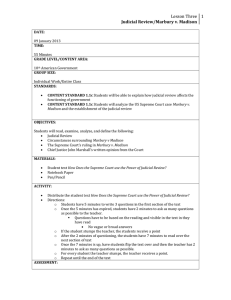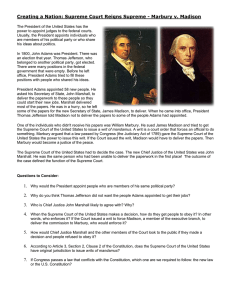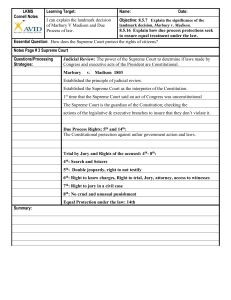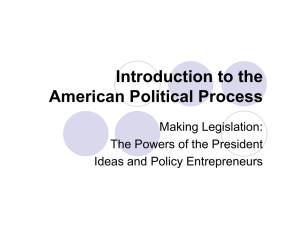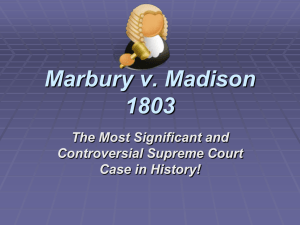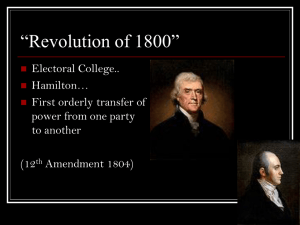Marbury v Madison Worksheet
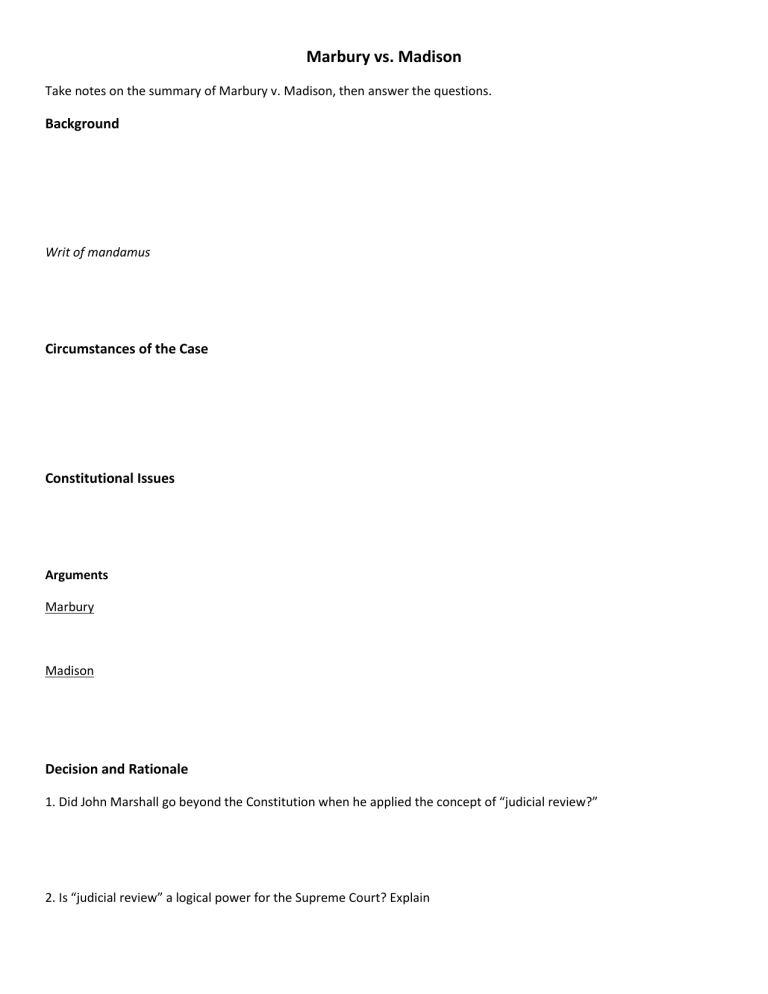
Marbury vs. Madison
Take notes on the summary of Marbury v. Madison, then answer the questions.
Background
Writ of mandamus
Circumstances of the Case
Constitutional Issues
Arguments
Marbury
Madison
Decision and Rationale
1. Did John Marshall go beyond the Constitution when he applied the concept of “judicial review?”
2. Is “judicial review” a logical power for the Supreme Court? Explain
3. Would members of the Court, so soon after writing the Constitution, be more likely to have some idea of “the intent of the Framers” than members of the Court have today? Explain.
4. Do you think the decision satisfied Marbury? Do you think the decision satisfied Jefferson and Madison? Explain.
5. How did this decision help make the Supreme Court as equal as the executive and legislative branches?
6. Who was Marshall likely to side with, Marbury or Madison? Why?
7. If the Court decided that Marbury was entitled to the commission, how could it be sure that the executive branch would deliver it? Does the Court have the power to force compliance? What would happen if the Court issued the writ, but the executive branch refused to comply?
8. (Use page 196, read Article III, Section 2) What types of cases does the Supreme Court have original jurisdiction? Does
Congress have the authority to alter the Court’s jurisdiction? Explain.
